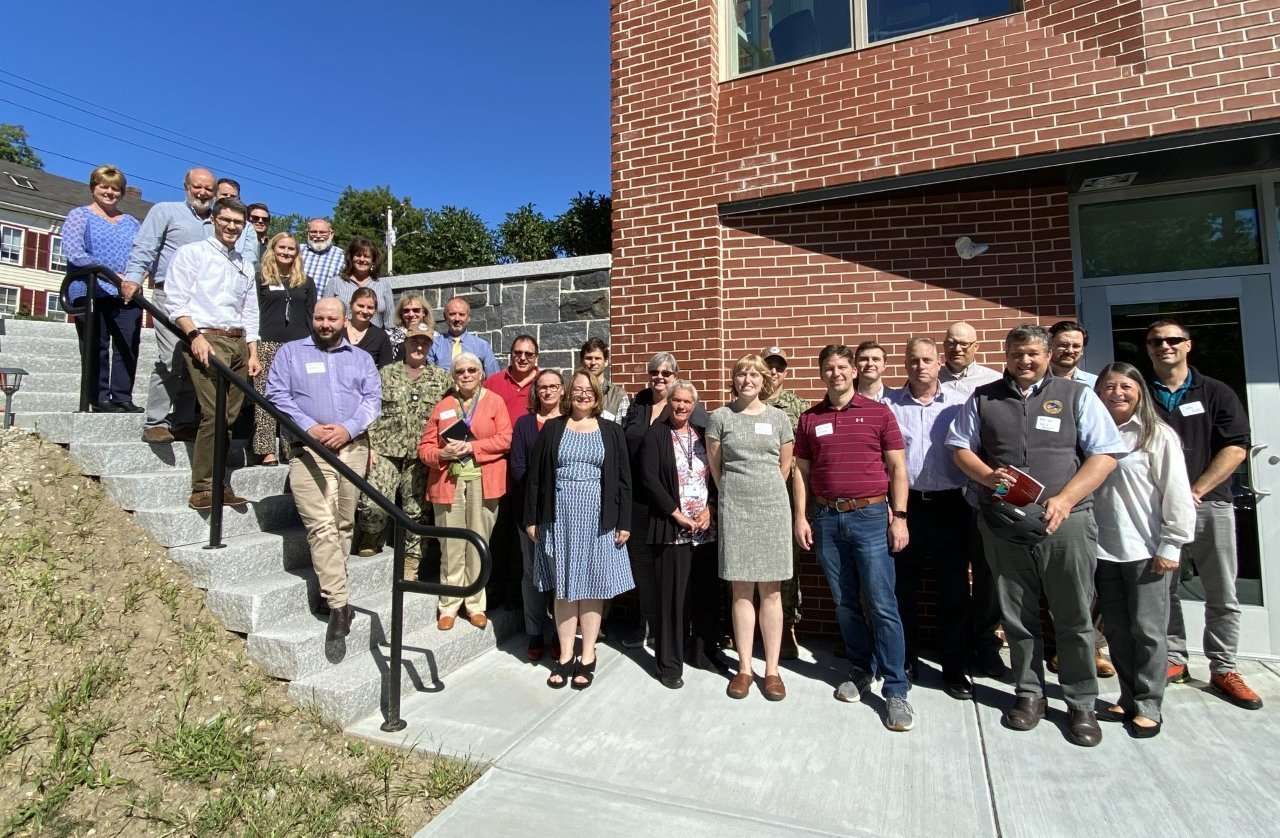Broad Partnership Created to Oversee Transit and Housing Initiatives

A coalition of stakeholders has begun the latest phase of the Joint Land Use Study (JLUS) from a US Dept of Defense grant.
Press Release
The City of Sanford stands to benefit from a microtransit project that is slated to be located in Sanford to accommodate Portsmouth Naval Shipyard workers. As the city with the largest number of PNSY employees, Sanford is an important participant in the coalition that has been established to oversee the continued implementation of transit, housing, and communications initiatives identified in a 2019 Joint Land Use Study funded through a US Department of Defense grant with the Town of Kittery and Portsmouth Naval Shipyard. Southern Maine Planning and Development Commission (SMPDC) is leading the effort with The Partnership Committee comprised of Kittery Town staff, Shipyard officials, City of Portsmouth representatives along with NH and Maine transportation organizations, Sanford, and other municipal, state and federal partners. The group conducted its kickoff meeting recently at the Rice Library in Kittery. The goal is to refine and implement strategies identified in the previous JLUS phases to improve traffic congestion and address housing affordability throughout the region in addition to building communication and collaboration between the Shipyard surrounding municipalities.
Background
A Joint Land Use Study (JLUS) is a planning initiative in which a local government and a military installation collaborate to create a blueprint for their mutual benefit – preserving military readiness while supporting community growth and economic development. In 2019, a JLUS planning phase was completed, focused on transportation, workforce housing, and land use issues surrounding the shipyard. It led to recommendations to improve traffic congestion, address climate and economic resiliency, and regional workforce housing challenges associated with the shipyard, and other large employers in the region.
According to Stephanie Carver, SMPDC Transportation Director, “This round of implementation will focus on regional transportation and housing recommendations. We are looking into designing a regional micro-transit service in Sanford and multi-modal hubs after analyzing links between housing and our transportation network. We will also address improving communication and collaboration between the Shipyard and the surrounding region.” Carver says a separate group, a regional Climate Cohort, will address climate resiliency issues under the same grant.
Kittery Town Manager Kendra Amaral says, “Each phase of JLUS has resulted in outcomes, from launching the COAST public bus service to the Foreside to establishing a park and ride at the Simon Malls on Route 1. We are excited for this phase and how it will further our efforts to manage the impacts a growing PNS has on our community and the region.”
In addition, Southern Maine Planning and Development Commission announced that it has selected Aecom Technical Services, a national consultant, to oversee a US Department of Defense grant that will implement transit, housing and communications initiatives with the town of Kittery and Portsmouth Naval Shipyard.
Further explanation
- Microtransit is a flexible on-demand mobility service that uses app technology and dynamic routing to deliver transportation to the public. The study will design and develop an estimate to implement a microtransit service connecting riders from inland communities to the Shipyard.
- Multi-modal hubs are infrastructure that allow people to switch seamlessly between the car and different modes of transport, and often located at a park and ride lot or large development site. The idea behind the hub is to reduce the number of cars traveling in and out of an urban area, and therefore reducing congestion. Hubs typically incorporate a variety of infrastructure elements such as EV charging, bike storage, and transit parking and pick up locations. The JLUS will identify and develop preliminary designs for three hubs in the region.
- The JLUS will conduct a regional housing analysis to examine projected housing demand and identify policy challenges to the creation of workforce housing in the region. The report will include achievable recommendations to help municipalities meet the challenges of increasing demand and high housing costs through zoning and other policy tools.
About Southern Maine Planning and Development Commission
Southern Maine Planning and Development Commission (SMPDC) is a non-partisan nonprofit that cultivates thriving, sustainable communities and strengthens local governments by leading planning and economic development for 39 member towns in Southern Maine. The organization was founded in 1964 to provide technical expertise to municipalities in York, southern Oxford, and Cumberland Counties. SMPDC offers a coordinated effort for land use, smart growth, resource management, environmental sustainability, and transportation planning. For more information, please visit www.smpdc.org






